NEW YORK, U.S.: Facial transplantation is one of the most extensive facial reconstructive surgeries available. The procedure involves the partial or total replacement of nerves, muscles and skeletal structures of the face, head and neck using donor tissue. A new case study by New York University’s Steinhardt School of Culture, Education, and Human Development has found that facial transplant surgery in a patient who had experienced severe facial trauma improved speech production.
“Our findings provide a window into the complex recovery process following major facial reconstruction and serve as an important foundation from which we can begin to understand how facial transplant can improve speech production preoperatively to postoperatively,” said Dr. Maria I. Grigos, lead author of the study and associate professor at the university. “Among the many remarkable patterns observed, we found that the patient displayed more flexible control of facial movement as he adapted to the transplanted structures.”
Using optical tracking, a form of motion tracking technology, Grigos and her team were able to examine firsthand how the facial transplant procedure altered movement of the face and contributed to improved speech production. The researchers compared data from the case study patient—a male victim who had suffered third- and fourth-degree burns and major soft-tissue loss in a fire—against data on four healthy adult men (controls).
The patient’s speech production and facial movements were examined once before the procedure and four times in the 13 months after the procedure. Movements of the patient’s lips and jaws, as well as the intelligibility of his speech, were compared pre- to post-transplantation and then tracked across the recovery period.
The study found that his speech intelligibility varied across the study period and was restored to control status by seven months post-transplant. Jaw displacement and lip aperture in the vertical plane significantly increased over time for nonspeech and speech tasks. Changes in horizontal lip movements over time were minimal. Jaw and lip movement variability fluctuated over time and was greater than that of the controls by 13 months post-transplant.
“The remarkable changes that we captured in this patient reflect the multiple processes involved in the reintegration of neuromuscular control and in the learning of new strategies over the recovery period. Such adaptability is a positive indicator that treatment to improve speech production can be effective post-facial transplant surgery,” continued Grigos.
The study, titled “Changes in articulatory control pre– and post–facial transplant: A case report,” was published in the February 2019 issue of the Journal of Speech, Language, and Hearing Research.
Tags:
LJUBILJANA; Slovenia: As the desire to maintain a youthful appearance grows, so does the market for effective anti-ageing solutions. Recent advancements in ...
WASHINGTON, US: The American Academy of Facial Plastic and Reconstructive Surgery (AAFPRS) has recently released the results of its 2024 annual member ...
BUFFALO, N.Y., US: Research has shown that smoking cannabis can be detrimental to overall health and can have adverse effects on the lungs, heart and brain....
HELSINKI, Finland: Finnish dental manufacturer Planmeca’s ProModel technology has supported the first facial tissue transplant procedure in the ...
BANGKOK, Thailand: Given the growing demand for non-surgical facial contouring and ongoing debate about the functional effects of muscle-relaxing procedures...
SYDNEY, Australia: Research shows that facial attractiveness can significantly influence social decisions, including those related to dating, recruitment ...
AARHUS, Denmark: Smoking can greatly affect periodontitis treatment—these are the findings of a recent study that investigated the influence of different ...
BORDEAUX, France: Research on children with severe or complex obesity suggests that oral health is often sidelined, despite its close links to overall ...
LOS ANGELES, U.S.: Owing to its considerable benefits, including being minimally invasive, robot-assisted surgery is gaining increasing recognition in many ...
WÜRZBURG, Germany: Advances in 3D-printing technology have the potential to transform how future dentists learn practical skills. A new study has ...
Live webinar
Tue. 3 March 2026
11:00 am EST (New York)
Dr. Omar Lugo Cirujano Maxilofacial
Live webinar
Tue. 3 March 2026
8:00 pm EST (New York)
Dr. Vasiliki Maseli DDS, MS, EdM
Live webinar
Wed. 4 March 2026
12:00 pm EST (New York)
Munther Sulieman LDS RCS (Eng) BDS (Lond) MSc PhD
Live webinar
Wed. 4 March 2026
1:00 pm EST (New York)
Live webinar
Fri. 6 March 2026
3:00 am EST (New York)
Live webinar
Tue. 10 March 2026
4:00 am EST (New York)
Assoc. Prof. Aaron Davis, Prof. Sarah Baker
Live webinar
Tue. 10 March 2026
8:00 pm EST (New York)
Dr. Vasiliki Maseli DDS, MS, EdM



 Austria / Österreich
Austria / Österreich
 Bosnia and Herzegovina / Босна и Херцеговина
Bosnia and Herzegovina / Босна и Херцеговина
 Bulgaria / България
Bulgaria / България
 Croatia / Hrvatska
Croatia / Hrvatska
 Czech Republic & Slovakia / Česká republika & Slovensko
Czech Republic & Slovakia / Česká republika & Slovensko
 France / France
France / France
 Germany / Deutschland
Germany / Deutschland
 Greece / ΕΛΛΑΔΑ
Greece / ΕΛΛΑΔΑ
 Hungary / Hungary
Hungary / Hungary
 Italy / Italia
Italy / Italia
 Netherlands / Nederland
Netherlands / Nederland
 Nordic / Nordic
Nordic / Nordic
 Poland / Polska
Poland / Polska
 Portugal / Portugal
Portugal / Portugal
 Romania & Moldova / România & Moldova
Romania & Moldova / România & Moldova
 Slovenia / Slovenija
Slovenia / Slovenija
 Serbia & Montenegro / Србија и Црна Гора
Serbia & Montenegro / Србија и Црна Гора
 Spain / España
Spain / España
 Switzerland / Schweiz
Switzerland / Schweiz
 Turkey / Türkiye
Turkey / Türkiye
 UK & Ireland / UK & Ireland
UK & Ireland / UK & Ireland
 Brazil / Brasil
Brazil / Brasil
 Canada / Canada
Canada / Canada
 Latin America / Latinoamérica
Latin America / Latinoamérica
 USA / USA
USA / USA
 China / 中国
China / 中国
 India / भारत गणराज्य
India / भारत गणराज्य
 Pakistan / Pākistān
Pakistan / Pākistān
 Vietnam / Việt Nam
Vietnam / Việt Nam
 ASEAN / ASEAN
ASEAN / ASEAN
 Israel / מְדִינַת יִשְׂרָאֵל
Israel / מְדִינַת יִשְׂרָאֵל
 Algeria, Morocco & Tunisia / الجزائر والمغرب وتونس
Algeria, Morocco & Tunisia / الجزائر والمغرب وتونس
 Middle East / Middle East
Middle East / Middle East
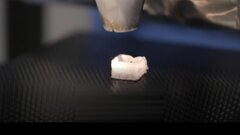
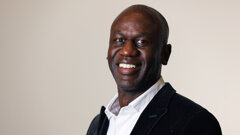
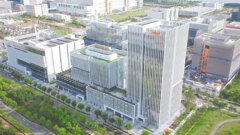
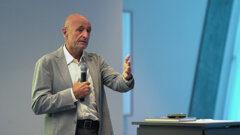
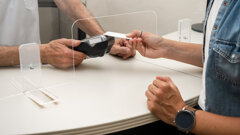





























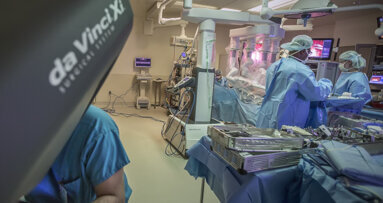
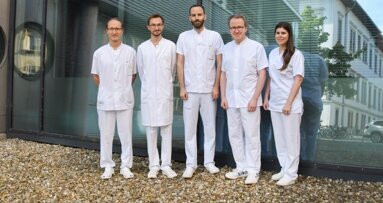







To post a reply please login or register